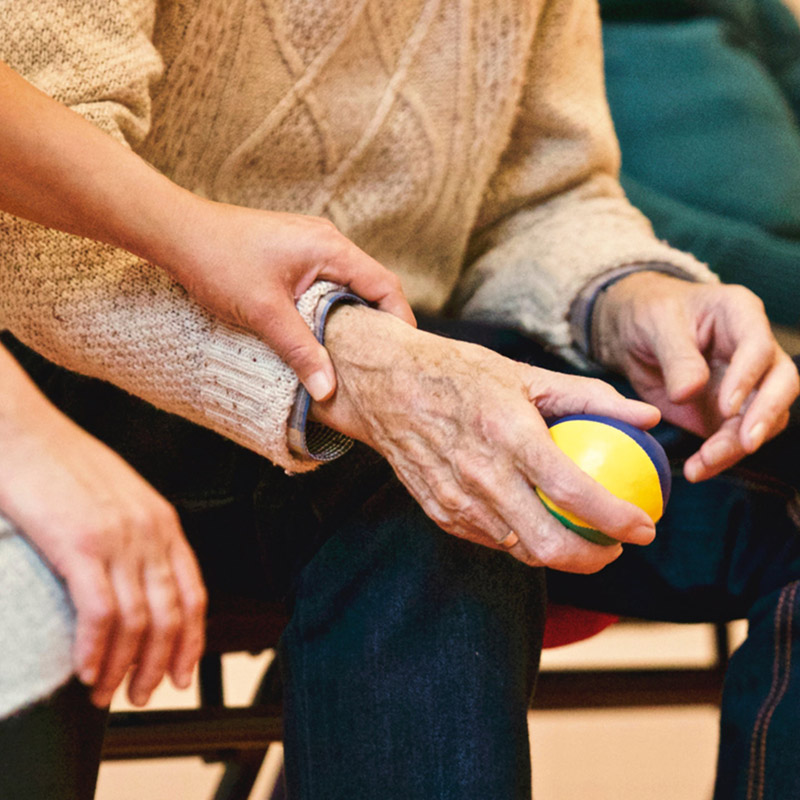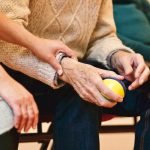
02 Jul Understanding Elder Abuse in Colorado – The Signs, Statistics, and How to Get Help
Understanding Elder Abuse in Colorado – The Signs, Statistics, and How to Get Help

As our society continues to age and medicine advances, we have seen an increase in elder abuse across the country – and Colorado is no exception.
Elder abuse is any behavior that negatively impacts older adults and includes physical, psychological, sexual, and financial abuse. Becoming older does not mean you lose your human rights or cannot care for yourself any longer, and mistreatment or abuse is unacceptable at any age.
As elder abuse is often underreported, it is impossible to know the true extent of abuse within our society. However, increased awareness is shining a spotlight on a crime that must be reported and stopped for the health and wellness of our most vulnerable citizens.
How to Spot the Signs of Elder Abuse
Physical Abuse
One of the most common abuse types is physical elder abuse.
Physical elder abuse can include hitting, slapping, beating, pushing, shoving, and other forms of actions causing bodily harm. In addition, older adults may show signs of bruises or broken bones, indicating that they are also being abused physically or emotionally.
Physical elder abuse can also include an older adult being tied up, locked inside a room, or confined in a chair for too long.
However, acts of violence aren’t the only sign of physical elder abuse.
Financial Abuse
Financial elder abuse is one of the most common elder abuse types as older adults do not have the same ability to protect their assets when they begin living on a fixed income.
The perpetrators can be family members, caregivers, healthcare professionals, and even strangers who take advantage of an older adult’s vulnerability.
Individuals may show signs that they are having difficulty with their bills or paying for care, such as missing social security checks or going into a nursing home they can no longer afford.
Older adults may also appear unaware of what is happening around them when it comes to finances, making it seem easy for abusers to prey on and take advantage of them.
Emotional and Mental Abuse
Emotional elder abuse is often the most difficult to detect, as older adults can be highly vulnerable and emotionally fragile.
In emotional elder abuse, the individual has a caregiver who controls their daily activities and isolates them from others. As a result, the individual may show signs of depression, anxiety, or other emotional distress, such as omitting or lying about family members to caregivers and family members to control them.
Sometimes an older adult may have no one else in their life but that particular caregiver. When an older adult shows signs of isolation and withdrawal from friends/family/caregivers, this can signify elder emotional abuse.
Colorado Elder Abuse Statistics
Knowing the statistics about elder abuse in Colorado can help bring awareness to the seriousness of these crimes and help us prevent them from continuing.
To combat and prevent elder abuse, the Colorado Department of Health has invested $3 million in purchasing better equipment for tracking purposes. This has allowed them to
track on a larger scale and share data with other agencies throughout the country who are fighting this problem.
According to the department, the conditions that increase the risk of elder abuse in Colorado include:
- dementia
- physical or medical frailty
- developmental disabilities
- brain injury
- behavioral disorders
- mental illness
Based on reporting to the state, approximately 51% of at-risk older adults have one or multiple of the conditions listed above.
The department also reports that nearly 25,000 reports of suspected mistreatment or self-neglect are made in the state of Colorado each year.
In recent years, Colorado has gathered that:
- 42% of elder abuse cases involved older adults ages 70-79.
- 44% were for individuals ages 80-89
- 12% were for older adults ages 90 to 104. There is a steep decline in percentage past 90 because it exceeds the average lifespan.
How to Prevent and Report Elder Abuse
It is crucial to be able to spot elder abuse types in older adults and families. Elder abuse is a problem that needs to be stopped before it begins and causes irreparable harm.
Abusers are often family members who have close contact with the elder. Therefore, educating those who engage with older individuals about elder abuse types and how to report elder abuse is vital for stopping abuse.
By reporting elder abuse in Colorado, you are helping save lives and protecting the rights of older adults.
There should always be someone on hand when an older adult is vulnerable and easy access to emergency services to ensure that help can come quickly.
Resources for Victims of Elder Abuse in Colorado
There are many elder abuse resources in Colorado that help older adults and families who have been the victims of elder abuse.
If you are concerned that you or someone you know is a victim of elder abuse, don’t hesitate to get in touch with one of the following resources to learn what actions to take:
- The Colorado Adult Protective Services
- Colorado Department of Public Health and Environment
- Health Facilities Division External Web Site Policy
- Colorado Division of Aging and Adult Services
- Colorado Long-Term Care Ombudsman
All of these organizations have toll-free numbers that you can use to report elder abuse concerns quickly. Each also offers a hotline for individuals to make safe, confidential calls in case of abuse emergencies.
Report Elder Abuse in Colorado Today and Help Save Lives
If elder abuse is reported quickly, it can be stopped, and a vulnerable older adult can be protected from harm.
Through awareness and action, elder abuse can be prevented and potentially stopped for good. It all starts with you taking the first step today by reporting abuse in Colorado.
The National Center on Elder Abuse provides information on how to report elder abuse. It also offers elder abuse statistics about financial exploitation, neglect, self-neglect, abandonment, and physical/psychological/sexual assault of older adults in various parts of the country.
By taking steps to report elder abuse, you are helping older adults to live a more dignified and safe life. Knowing how to spot the signs of elder abuse and how to step in and help those in need is one way to make Colorado a leader in helping stop abuse and improve the quality of life for everyone.

Vintage offers individual counseling to family caregivers under the National Family Caregiver Support Act. Call today at 970-468-0295 or at efisher@nwccog.org
-

Understanding Elder Abuse in Colorado – The Signs, Statistics, and How to Get Help
As our society continues to age and medicine advances, we have seen an increase in elder abuse acros…
02 July, 2021
No comment -

Vintage: Alpine Area Agency Celebrates Older Americans Month
Contact: Erin Fisher 970-455-1067efisher@nwccog.org FOR IMMEDIATE RELEASE: Alpine Area Agency Celebr…
26 May, 2021
No comment -

Aging in Place in Colorado
Housing in Mountain Communities: Things to think about as you age in place Have you ever wondered …
25 March, 2021
No comment





